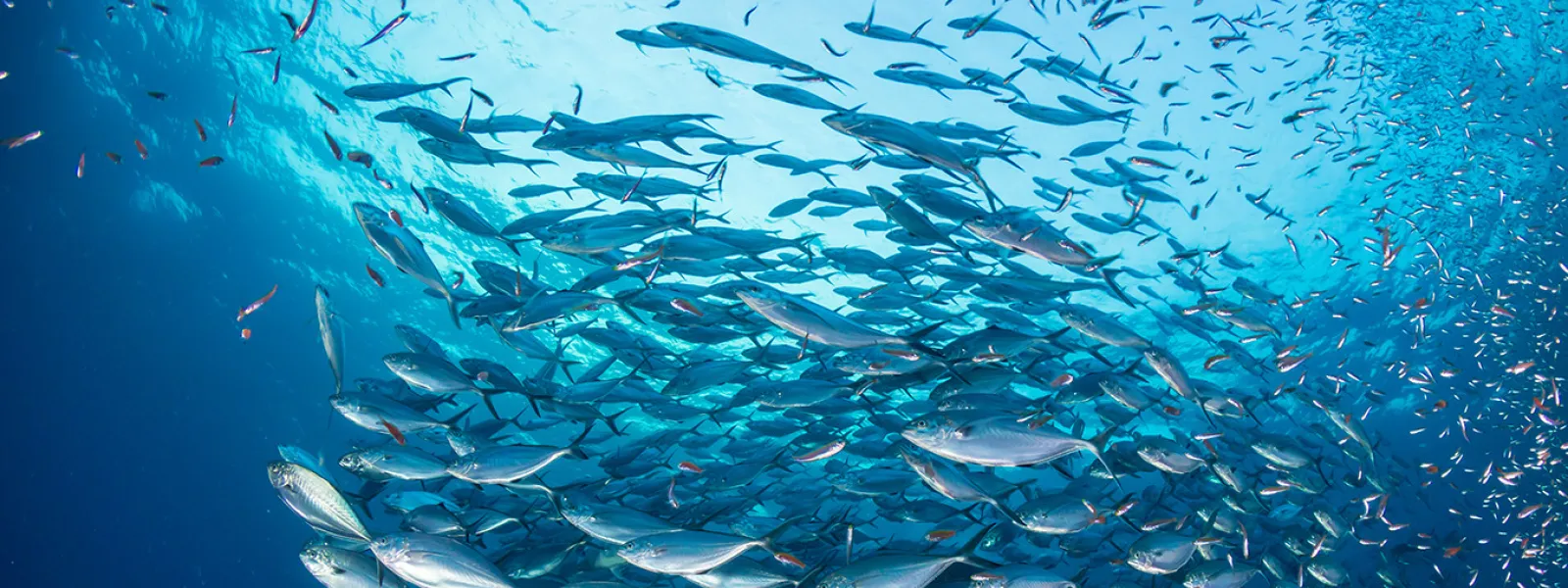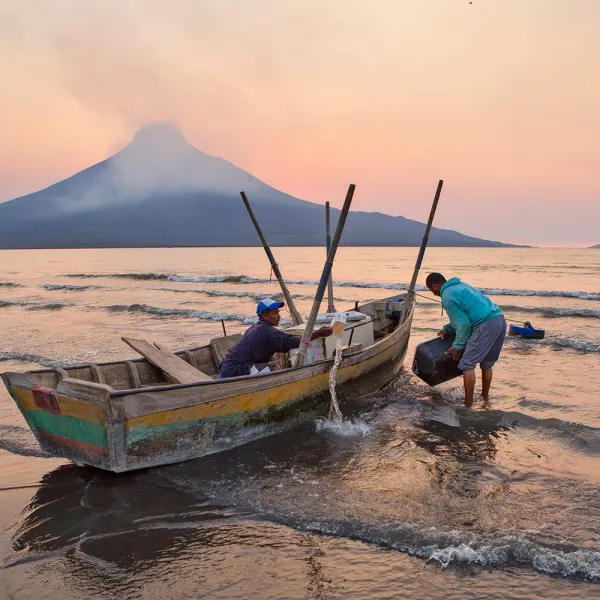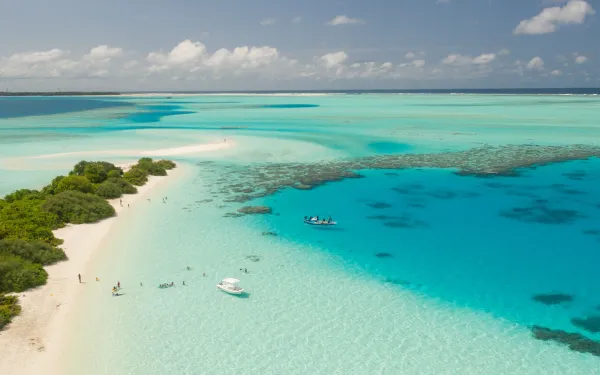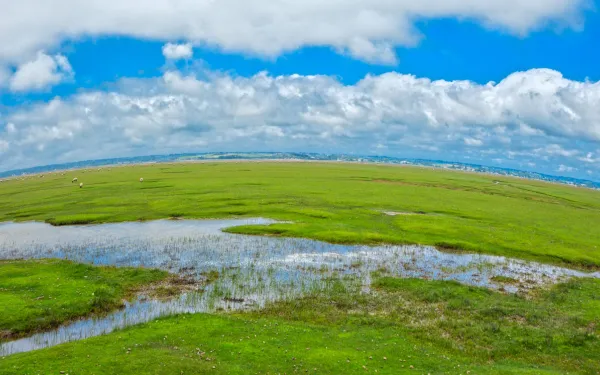
Project
ShutterstockTowards an end to subsidies that promote overfishing
Overfishing is one of the main problems for the health of our ocean. And the provision of negative subsidies to the fishing sector is one of the fundamental causes of overfishing.
Fishing subsidies are financial contributions, direct or indirect, that public entities grant to the industry.
Depending on their impacts, they can be beneficial when they promote the growth of fish stocks through conservation and fishery resource management tools. And they are considered negative or detrimental when they promote overfishing with support for, for example, increasing the catch capacity of a fishing fleet.
It is estimated that every year, governments spend approximately 22 billion dollars in negative subsidies to compensate costs for fuel, fishing gear and vessel improvements, among others.
Recent data show that, as a result of this support, 63% of fish stocks worldwide must be rebuilt and 34% are fished at "biologically unsustainable" levels.
Although negotiations on fisheries subsidies, within the framework of the World Trade Organization, officially began in 2001, it was not until the 2017 WTO Ministerial Conference that countries committed to taking action to reach an agreement.
This finally happened in June 2022, when member countries of the World Trade Organization reached, after more than two decades, a binding agreement to curb some harmful fisheries subsidies. It represents a fundamental step toward achieving the effective management of our fisheries resources, as well as toward ensuring global food security and the livelihoods of coastal communities.
The agreement reached at the 12th WTO Ministerial Conference provides for the creation of a global framework to reduce subsidies for illegal, unreported and unregulated fishing; subsidies for fishing overexploited stocks; and subsidies for vessels fishing on the unregulated high seas. It also includes measures aimed at greater transparency and accountability in the way governments support their fisheries sector.
The countries agreed to continue negotiating rules to curb other harmful subsidies, such as those that promote fishing in other countries' waters, overfishing and the overcapacity of a fleet to catch more fish than is sustainable.
If we want to have abundant and healthy fishery resources, it is time to change the way we have conceived fishing until now. We must focus our efforts on creating models of fishery use that allow for long-term conservation.
Partners:


Six advances for Latin America’s reefs in 2018
In 2018, we joined people and organizations around the world in celebrating the International Year of the Reef. AIDA was part of a global movement to increase awareness of the value of reefs and the threats they’re facing. To advance reef conservation in the Americas, we took part in a variety of legal actions to protect reefs in Mexico and the Caribbean. As always, we’re proud to celebrate the small victories we’ve achieved on the road to environmental justice in 2018. Together with our supporters and allies we: Supported a case in defense of the Veracruz Reef In February, we presented an amicus brief in support of an amparo filed by local residents against the expansion of the Port of Veracruz. We outlined how Mexico’s approval of the project in 2013 violated the nation’s international environmental and human rights commitments. Just a year earlier, the government had reduced the area of the reef system, changing its boundaries to make the project viable. At the time of authorization, adequate scientific information was not available to understand how to avoid damaging the reefs and protect the services they provide to the people of Veracruz. To raise awareness of the issue, we also co-produced a documentary, Battle for the Reefs of Veracruz. Alerted the Ramsar Convention to threats to Puerto Morelos Reef We sent an Urgent Alert to the Secretariat of the Ramsar Convention, alerting them to the threats to Puerto Morelos Reef National Park, a national protected area and Wetland of International Importance. Together with a coalition of civil society organizations, we solicited a visit of international experts to evaluate the risks facing the site, particularly changes in land use in coastal ecosystems due to massive and unsustainable tourism development. Created a Working Group on Threats to Mexico’s Wetlands In May, the Working Group on Threats was created within the National Wetlands Committee, which AIDA helped create in order to motivate Mexico to comply with its obligations to protect at-risk wetlands of international importance. Within the framework of this Group, efforts are being made to strengthen national actions to protect Ramsar ecosystems, including reefs and the herbivorous fish that make their home in them. Supported the protection of 10 species of parrotfish in Mexico’s Caribbean In October we presented a letter of support outlining international environmental and human rights arguments for the inclusion of 10 species of parrotfish on Mexico’s national list of at-risk species. While the inclusion has been acknowledged and accepted, official confirmation is expected early this year. Our efforts supported a proposal of the Health Reefs Initiative that seeks to legally protect parrotfish species, which are critical to maintaining a healthy coral reef ecosystem. Parrotfish and other herbivorous fish feed on algae that compete with corals for light and oxygen, thus enabling the reef to flourish. Helped Establish a Working Group on Corals in Costa Rica In coordination with the Ministry of Environment, we helped organize a working group of academic experts, members of civil society and competent governmental authorities that will propose comprehensive solutions to the problems facing the country’s coral ecosystems. Together we will work to ensure integral solutions to protect Costa Rica’s coral reefs. Supported a Working Group on Herbivorous Fish in Guatemala In coordination with the Healthy Reefs Initiative, academics from San Carlos University and members of the government, we’ve supported the creation of a working group to draft a technical-scientific document that outlines the information necessary for a ministerial decree to prohibit the fishing of herbivorous fish in the Guatemalan Caribbean and, thus, protect the nation’s reefs.
Read more
10 environmental successes from Latin America in 2018
This year was characterized by triumphs such as the creation of legal protections and the establishment of policies favorable to the environment and human rights in the region. Rarely in a single year do we see so many precedent-setting institutional advances. What follows are 10 stories we applaud from 2018: 1. For the first time, the Inter-American Court recognized a healthy environment as “fundamental” In its first time speaking on the subject, the Court concluded that a healthy environment is an autonomous right, “fundamental to the existence of humanity.” The relationship between the environment and human rights may sound obvious, but until February of this year, when the Court’s opinion was made public, there were no precedents of this magnitude recognizing the link. The opinion responds to a query made by Colombia. In it, the Court also recognizes that climate change impacts the enjoyment of human rights, especially among the most vulnerable populations. The OC-23, as it is known, established a historic precedent for the protection of human rights in the Americas and will be an important tool for environmental justice in the region. Learn more 2. Nations adopt the first regional treaty on environmental issues Over the course of the year, 16 nations have signed the Escazú Agreement. Not only is it the first treaty on environmental issues in Latin America and the Caribbean, it is also the first in the world to include provisions on human rights defenders in environmental matters. Its main objective is to guarantee the rights of access to environmental information, public participation in environmental decision-making processes, and justice in environmental matters. Learn more 3. Parrotfish receive special protection in Mexico Schools of colorful parrotfish feed on the macro algae that compete with coral for light and oxygen, helping to improve coral health. But overfishing and other factors have caused parrotfish populations to decline, placing corals at greater risk. In an effort to protect this key ally of the reefs, 10 species of parrotfish are in the process of being included in the Mexican government’s list of protected fauna. Learn more 4. Indigenous peoples recognized in climate finance Following years of work by indigenous peoples around the world, the Green Climate Fund approved an Indigenous Peoples Policy with the objective of protecting, recognizing, respecting and promoting their rights within the financing of climate projects. The decision was received with hope in a world that requires immediate actions to mitigate and adapt to climate change. This sort of policy helps to prevent climate finance from violating the rights of the most affected populations. Learn more 5. A regional plan to protect jaguars Conservation organizations teamed with 14 nations to launch Plan Jaguar 2030 with the intention of protecting corridors, or natural routes, linking populations of the largest carnivore in Latin America without natural predators. Jaguar populations extend through 18 countries, but are rapidly diminishing due to poaching, habitat fragmentation, and conflict with human activities. In El Salvador and Uruguay, they have been declared extinct. The plan provides hope for jaguar protection across borders. Learn more 6. Colombia says no to fracking pilot tests The Colombian Environmental Licensing Authority (ANLA, for its initials in Spanish) denied permission for ConocoPhillips to carry out the first hydraulic fracturing pilot tests for the extraction of hydrocarbons in San Martin and Aguachica, in the department of Cesar. ANLA argued that the information presented by the corporation was “insufficient” to understand the management and availability of water, and also questioned its environmental evaluation and contingency plan. For now, the initiative is archived. Continuing to bet on fossil fuels moves nations further away their climate goals; it is important to commit to a clean energy transition. Learn more 7. A region fight against fracking reaches the Inter-American Commission Organizations and communities from across the region joined forces to bring before the Inter-American Commission on Human Rights cases of human rights violations and threats to the environment caused by fracking. After various local struggles, this was the first time that the damages documented in nations across the Americas were presented before a regional organization. The Commissioners responded with great interest to the testimonies presented. Regarding this issue, the new government of Mexico said there will be no more fracking in the nation. Learn more 8. A treaty to protect two-thirds of the ocean Following a decade of discussions, negotiations began at the United Nations for a legally binding treaty to protect biodiversity on the high seas, those marine areas outside of national jurisdictions. Negotiations will take place until 2020. Although the high seas represent 64 percent of the total surface area of the ocean, and the ocean absorbs 90 percent of the heat caused by global warming, no overarching treaty exists to protect this ecosystem, only fragmented regulations. Learn more 9. Chile closes the Pascua Lama mine In October Chilean authorities confirmed the definitive closure of Pascua Lama, a gold mining project on the border of Chile and Argentina. Barrick Gold, the company in charge of the project, was fined for 33 violations of Chilean environment regulations. Pascua Lama caused great damage to native plants and animals. Indigenous peoples of the region—who had documented the contamination of a river and impacts on glaciers, an important water source—celebrated the decision. Activists are now seeking to stop the project on the Argentina side of the border. Learn more 10. Argentina’s creation of National Parks breaks record Just before the end of the year, Argentina announced the creation of two marine protected areas: Yanganes, south of Tierra del Fuego, and Namuncurá-Burdwood Bank II, in the south Atlantic. Both are important sites for the breeding and spawning of fish with high commercial value. With this pair, the country added six natural areas declared as national parks in 2018 alone, a truly historic effort. The other parks include: Traslasierra, Aconquija, Ciervo de los Pantanos and Iguerá. Argentina has proposed the protection of 10 percent of its seas by 2020. Learn more
Read more
Why we’re working for climate justice in Latin America
“The world has many problems, but to me none seem as ubiquitous or as dangerous as climate change,” says AIDA attorney Florencia Ortúzar. “It really is the great challenge of our generation.” At AIDA we understand the magnitude of the problem. That’s why we incorporate climate justice as a key concept in all our lines of work. It’s why we advocate for sustainable development that respects the environment and the rights of vulnerable communities and, at the same time, why we work to stop climate-aggravating activities. “What motivates me to fight climate change is my awareness of the huge problem we’re facing, and my steadfast determination—I know we can’t give up,” Florencia says. She shares that motivation with AIDA’s entire team of attorneys, scientists, communicators, fundraisers and administrators. When she was a child, Florencia received a very special gift from her father: a badge that said “world saver.” That very day, on a beach in her native Chile, Florencia hooked the badge to her clothes and began picking up trash, cleaning the beach. That small gift jumpstarted her life’s mission. Florencia went on to study law, with the goal of working for the protection of forests, rivers, animals, and all the elements of the natural world. “Luck was with me when I found AIDA, the organization that has trained me and has enabled me to make my contribution to a better world,” she says. Florencia is part of AIDA’s Climate Change program. Our objective is to help Latin America—one of the regions most vulnerable to the climate crisis—be a leader in the type of changes required on a global level to avoid catastrophe. In partnership with allied organizations and hand-in-hand with communities, we work to stop the blind advance of fracking and large dams, mega-projects which imply significant emissions of methane, a greenhouse gas 34 times more powerful than carbon dioxide. We also work to raise awareness and educate public policy makers on the importance of controlling short-lived climate pollutants. We seek to protect terrestrial and marine ecosystems that capture carbon emissions—such as coral reefs, mangroves, wetlands and páramos—which, in turn, helps to mitigate climate change. We monitor international climate negotiations, advocate for Latin American nations to have the necessary economic resources to deal with climate change, and work to ensure that climate finance respects human rights. “Although many of the effects of climate change are inevitable, and may already be occurring, the efforts we make to stop the problem and to adapt to it will help future generations, who had nothing to do with causing the problem,” Florencia explains. She shares her message wherever she goes, encouraging others to join the fight. “I refuse to be part of the last generation to enjoy the natural wonders of our planet.”
Read more